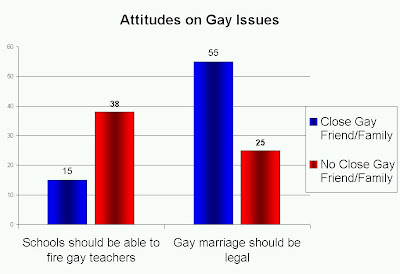June 6, 2007
Posted by Jay Livingston
Stanley Milgram’s experiments on “obedience to authority” and Philip Zimbardo’s prison simulation are two of the most famous studies in all social science. If there’s anything that we should have learned from them it’s this:
In new and unusual situations,
1. We are not very good at predicting what we ourselves or anyone else will do
2. Individual factors like character and personality are far less important than situational pressures.
Today, the New York Times reprinted excerpts of letters asking for leniency in the Scooter Libby case. The article should have carried the title “Fooled by Character.”
The judge had sentenced Libby to 2½ years in prison for lying to the FBI and to a federal grand jury. Libby frequently claimed not to be able to remember a lot of important things about the disclosure of the identity of a CIA agent. In the criminal trial, the jury concluded, beyond a reasonable doubt, that he was lying about these losses of memory.
Libby was trying to protect the Bush administration generally and perhaps specific members of it (Rove? Cheney?) in outing CIA agent Valerie Plame. The Bush team leaked Plame’s identity in order to discredit her husband, who had undercut some of the administrations claims about Saddam’s WMDs.
None of Libby’s supporters (mostly Bush administration biggies) argued that Libby had been wrongfully convicted and that he hadn’t committed the crimes he was convicted of. But clearly, they found it difficult to believe. A man of such good character could never commit such crimes, could he? Here’s James Woolsey, former head of the CIA:
His conviction for perjury and obstruction of justice is completely inconsistent with my knowledge, and highest evaluation, of this man's character and integrity.
And Richard Perle (something of a
slimeball himself):
Having known Scooter Libby for many years, I am unable to reconcile the man I know with the crime for which he has been convicted.
Obviously, Woolsey and Perle have not learned the lessons of Milgram-Zimbardo.
More sophisticated is Henry Kissinger:
I would never have associated the actions for which he was convicted with his character. . . . Having served in the White House under pressure, I have seen how difficult it sometimes is to recall precisely a particular sequence of events. This does not justify the action, but it may help you consider mitigating circumstances.
Kissinger at least recognizes situational pressure. But he sees that pressure as affecting only the ability to remember, not the willingness to lie to authorities in order to protect a bankrupt policy and the claims that it was based on. Still, Kissinger, like the others, is blinded by character.
It all reminds me of official reaction when the abuses of Abu Ghraib were exposed and could not be covered up. A military spokesman said, “It's just not something we would do.”
The Daily Show* caught this paradox perfectly when it had Rob Corrdry explain, “We shouldn’t be judged on our actions. It’s our principles that matter, our inspiring, abstract notions. Remember: just because torturing prisoners is something we
did, doesn't mean it’s something we
would do.”
Committing the crimes of perjury and obstruction of justice was not something that Scooter Libby
would do. It was just something he
did do.
* Personal note: I will be in the audience at today’s taping of The Daily Show.



